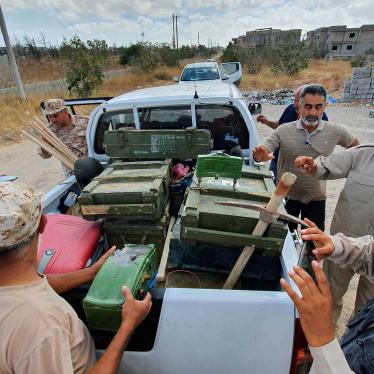Iran: Security Forces Killing Kurdish Border Couriers
In Poor Region, Scores Killed Taking Goods Across the Iran-Iraq Border

Antipersonnel landmines are weapons that cannot discriminate between a civilian and a combatant. They are designed to be exploded by a person’s presence, proximity, or contact and pose and remain active for decades, endangering children, agricultural worker, or anyone who steps in their path. The 1997 Mine Ban Treaty comprehensively bans the use, production, stockpiling, and transfer of antipersonnel mines, and requires states to destroy their stockpiles and clear all mined areas as well as assist landmine survivors. A total of 164 states have joined the Mine Ban Treaty and are making steady progress towards a landmine-free world, but several countries that produce landmines have not joined the treaty. Human Rights Watch is a founding member of the International Campaign to Ban Landmines (ICBL), the 1997 Nobel Peace Co-Laureate together with its coordinator Jody Williams, and contributes to its Landmine Monitor report.
In Poor Region, Scores Killed Taking Goods Across the Iran-Iraq Border

Ukraine Should Investigate Forces’ Apparent Use; Russian Use Continues

ICC Prosecutor Should Investigate Use of Unlawful Mines, Booby Traps

Increase Support for Clearance, Recovery Assistance around Tripoli

Delivered by Steve Goose, Arms Campaigns Director

Delivered by Steve Goose, Arms Campaigns Director

Delivered by Steve Goose, Arms Campaigns Director

Delivered by Mark Hiznay, Associate Director
Delivered by Steve Goose, Executive Director

Worldwide Report Tracks Compliance with Treaty


Additional Evidence Underscores Need for Prompt, Thorough Investigation, Accountability


Testimony on the subtheme of "Disarmament and Non-Proliferation" by Kanae Doi, Human Rights Watch on 22 February 2023